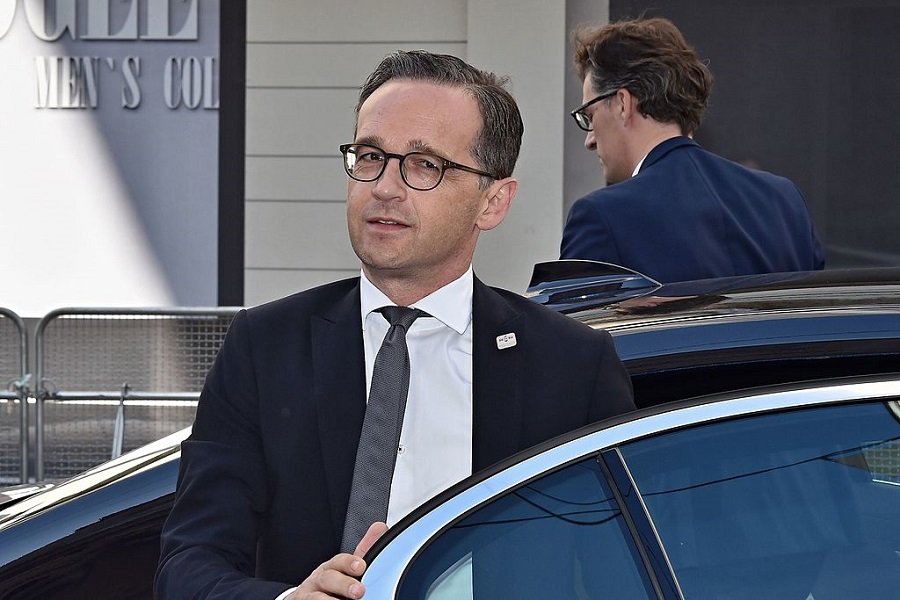We need to talk about disarmament
Article by Foreign Minister Heiko Maas in Spiegel Online on the United States’ decision to withdraw from the Intermediate-Range Nuclear Forces Treaty.
06.11.2018
______________________________________________________________________________________________________________________________________
A nuclear arms race, and nuclear deterrence – these are much talked about now that the INF Treaty, which bans ground-based intermediate range missiles, is on the verge of being abandoned. The terms call to mind the eighties, specifically the heated debates that were held over NATO’s Double Track Decision and the Bonner Hofgarten demonstrations.
Yet this comparison falls short. Because unlike then, we today do not have two largely predictable, equally strong opposing blocs. Asymmetry has increased. The boundaries between conventional and nuclear threats have become blurred. What is particularly challenging is that a lesson of the policy of détente has been forgotten, namely that only reliability and transparency build trust, and only trust creates security.
Trust has also been lost due to Russia’s refusal to provide evidence in refutation of severe accusations that it has violated the INF Treaty. I have called on my Russian colleague to adhere to the treaty and ensure full transparency. So far, this has not occurred.
Mikhail Gorbachev and Ronald Reagan were aware of the importance of arms control and disarmament when, in the midst of the Cold War, they took bold steps to reduce their arsenals. We Europeans are well-advised to remind Moscow, as well as Washington, of this. If the INF Treaty were to end, this would also spell the demise of one of the greatest accomplishments of disarmament policy. It would heighten insecurity and spur rearmament around the world. This is why we are urging Washington to not hastily withdraw from the treaty, but rather to join European allies in working towards compliance. Because key European interests are at stake.
If we want to protect peace in Europe, we must rethink arms control and disarmament policy. Some of the current rules are flawed and have been overtaken by technological developments. Despite our great concern regarding the INF Treaty, we must admit to ourselves that simply preserving it will not be enough to guarantee our security. Russia’s stationing of nuclear-capable missiles in Kaliningrad is one example of this. Although the range of these missiles is not covered by the INF Treaty, they can still reach large parts of the European Union within minutes.
Our political efforts must focus on four areas:
First, we need to finally return to serious dialogue between the Americans, the Europeans and the Russians – with the aim of examining the risks we all are exposed to due to new weapons systems and a flawed arms control architecture. Common interests must prevail over mutual mistrust. We are obliged to pursue this aim, already because of our geographic location. What is more, all sides agree that threats in recent years have sharply increased. Even during the Cold War, there was constant dialogue to create transparency and prevent misinterpretations. That’s where we want to begin, and we will work in the coming months to bring European partners on board.
Second, we will make proposals for a comprehensive regime that creates transparency for missiles and cruise missiles. Whether it be in the Near and Middle East, or in East Asia – any arms race will escalate conflicts. We want to advance discussions on an international set of rules that will, for example, also include cruise missiles.
The United States is right to criticise that, so far, China’s massive armaments efforts have been accompanied by no confidence building measures whatsoever. That is why, third, I will also use my talks in Beijing in the coming days to press for greater transparency and arms control.
Fourth, we want to ensure that our rules keep pace with technology and new weapons that are constantly being developed. Some of these may sound like science fiction – space weapons, and hypersonic missiles, leaving no time for human response. If we do not take far sighted action, science fiction may soon become deadly reality. Here, I am also thinking of autonomous weapons systems, or killer robots, that kill without any human control. To avert such horror scenarios, we have launched an initiative in the United Nations that aims to ban these weapons. However, we want to go even further, by hosting an international conference in Berlin next year through which we hope progress can be achieved on measures to control other new weapons systems, as well.
Quick results are by no means guaranteed. Trust is not built overnight. Ultimately, however, we will not create peace and security by opposing, but only by cooperating, with one another. Germany must remain a force for peace. We will resolutely and persuasively campaign for disarmament and arms control. It is the only way to halt a global arms race. It is the only way that we can secure peace in Europe.
* * * * *
Zdroje: https://www.auswaertiges-amt.de/en/newsroom/news/maas-disarmament/2157994
Ilustračné foto: https://commons.wikimedia.org/wiki/File:DOOR_STEP_(28089264861).jpg







